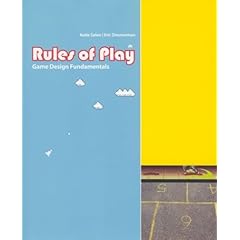It is a game from 2 to 4 players, so we tried a 2 player game. It was the second playtest (the first one was in 4).
I'm not going to describe the game here, but I would like to point out about an aspect of the game that was not working and how I want to try to solve it.
The problem is about the mechanism of the combat: it is the first time I'm working on a game where it is possible to have a fight between players.
So I am a little bit worried about, even because fighting is not excatly a typical german game mechanism...
During the playtest simply the combat doesn't occur. The main reason was that it was not neccessary to figth because we had enough space where to expand our villages whithout moving in conflict. Maybe the board was too big for 2 players, so that it could be resolved by a fine tuning of the dimension. Or maybe both our nature let us finding alternative strategy other than a fight.
Because the combat did not occur we also avoid to choose the "warrior cards" during all the game. Warrior cards were an option during a specific phase of the game where a player is prompted to choose between different actions. One of these actions is to "hire" warriors and it was never used. From a design point of view this phase were weaker because of the reduced number of choices.
 As Knizia wrote in an interesting interview reported into the book "Rule of play" when something goes wrong during a playtest, you have to search for a good solution, not for a patch. He was talking about the playtest of his "The Lord of the Ring" collaborative game and how he found good solutions to resolve several problems all in once instead of applying a patch for each issue.
As Knizia wrote in an interesting interview reported into the book "Rule of play" when something goes wrong during a playtest, you have to search for a good solution, not for a patch. He was talking about the playtest of his "The Lord of the Ring" collaborative game and how he found good solutions to resolve several problems all in once instead of applying a patch for each issue.In my situation I had 2 main problems:
- the combat never occured
- the choice in a certain phase is less interesting (due to the avoiding of combat)
But the game was quite good even without fights! And Stefano convinced me to remove from the rules the possibility of a combat.
Instead of trying to make a patch for the two problems I would like to search an alternative solution where these problems are simply no more reported!
Let's assume that it is possible to play, with fun, without any combat as Stefano suggested.
In this case I still have the second problem to resolve: infact if I have no more combat I have no more "Warrior cards". So I have less choice.
I need more choices during this phase in order to give more spice to the game.
Another thing I had notice is the lack of a final score system. Up now I have a scoring during the end of each turn and an intermediate scoring during specific rounds, but still have no final score (for the end of the game).
I would like to resolve both lacks in once single way, as Dr Knizia teachs. So if I am able to introduce some actions useful for the final (or intermediate) score I maybe fix these problems.
Let's see in future playtests.
Emanuele

